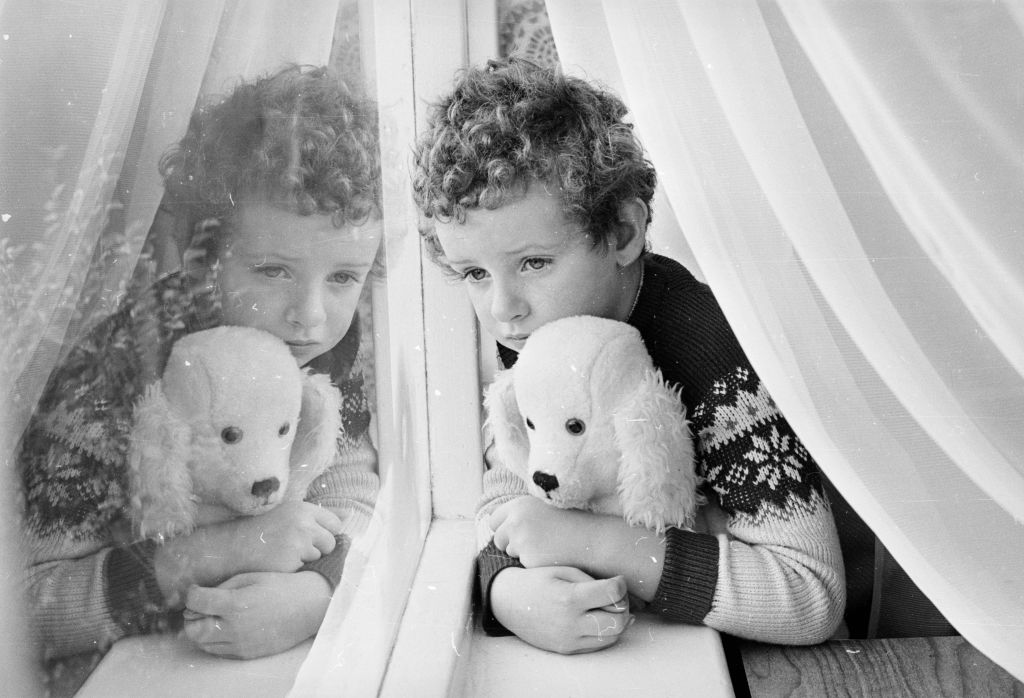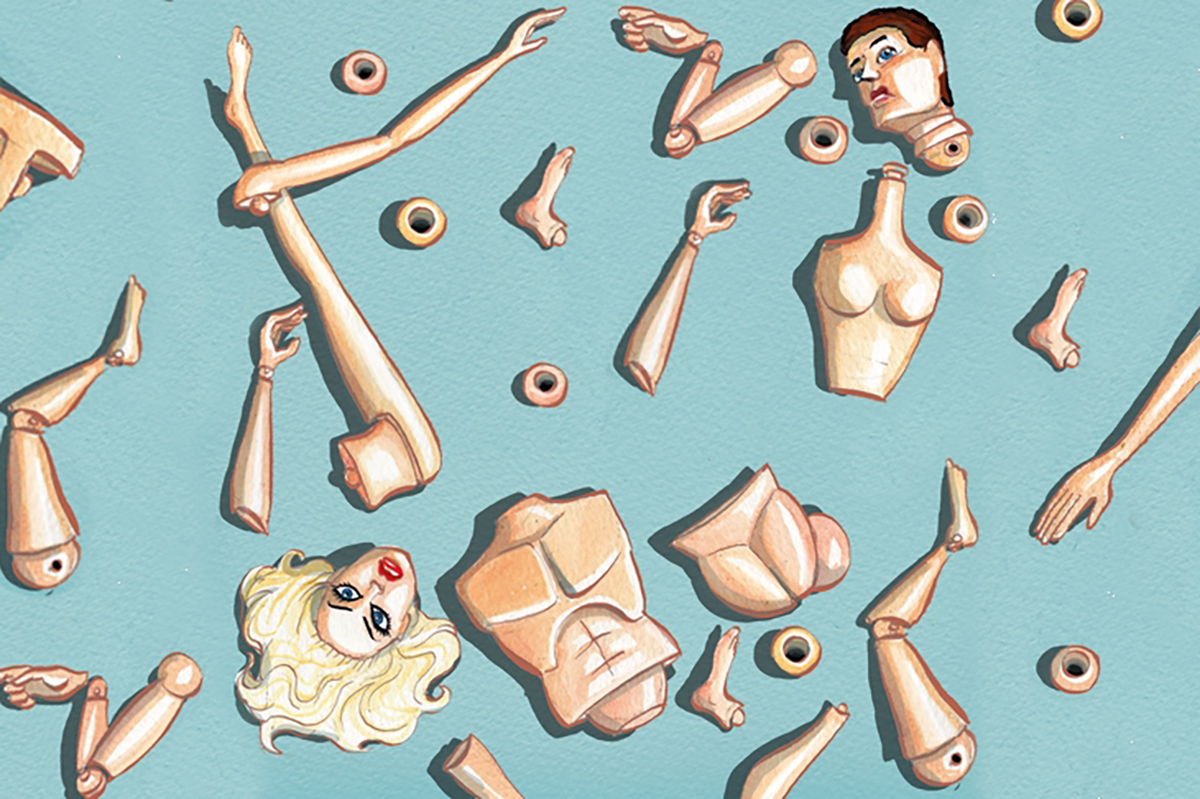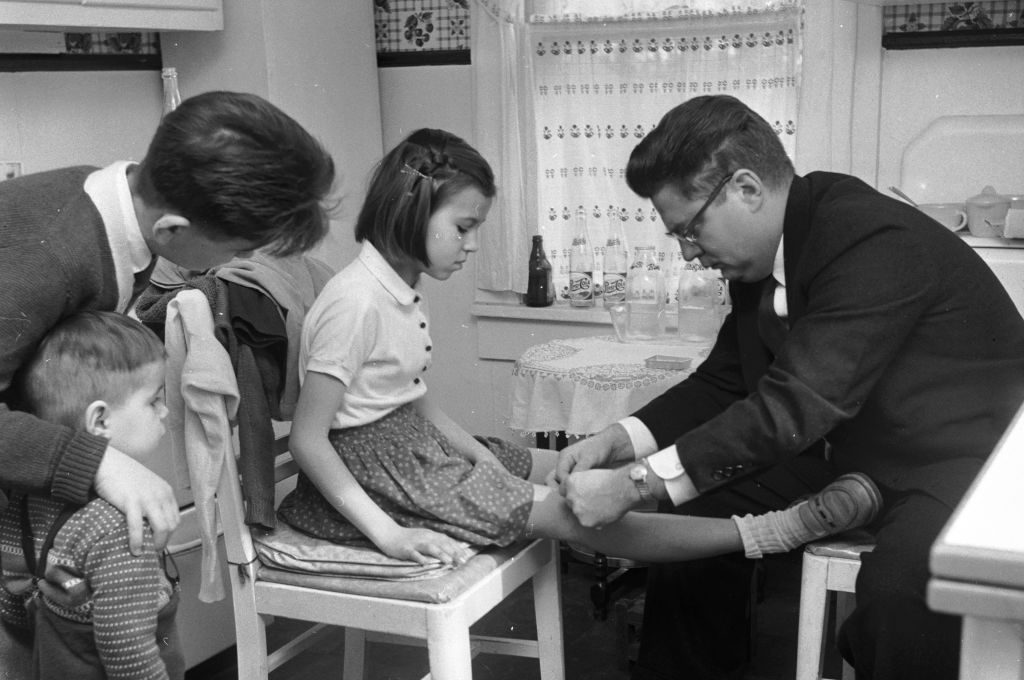When my parents split up I was twelve years old. They were officially divorced and in new relationships a year later. My husband was ten when his parents split up. We both talk about how those moments were pivotal in our lives, the moment that we went from shy, straight-A students to troublemaking partiers.
My mom moved us to Minnesota with our shiny new (insane) stepfather, apparently with my father’s blessing. He’d taken a huge financial hit and couldn’t afford to fly all us kids home, so we spent that first lovely Christmas eating McDonald’s on the beds of the Mall of America hotel.
Logistically it would be a nightmare forever. Christmas vacations were divided, so we spent the first half in Minnesota and flew, often on Christmas or the day after, back to Rhode Island for the second half. Summers were our time with our dad. We’d all go back east for weeks or months at a time, but my dad would never own a house of his own after the divorce so we shuffled around, staying with his parents. We were preteens and teens at this point and my dad was very busy with his new girlfriend and their summer social life — so we got into a lot of trouble.
Some of my cousins weren’t allowed to hang out with us because my aunt and uncle — who were strict, present parents — knew that no one was supervising us. They were right. No one was watching us. We were feral teens. We smoked cigarettes and drank. We stole my dad’s car at night and shoplifted by day. We laugh now about how we subsisted on raw spaghetti and pickle juice, but it was true. We would rummage through the pantry and eat whatever we could find. My aunt said to my dad at one point, as she watched us crunching handfuls of raw pasta, “Feed your kids! They’re starving!” And although we weren’t literally starving, it would have been nice to have had a sandwich once in a while.
Over time, amid continuing dysfunction at home, my grades took a nosedive. I got lost in addiction. So did my husband. We are both lucky we made it out of the chaos alive and not imprisoned, although it took decades. We met in recovery, in our forties. I’m brushing over a lot of misery to get to the point, although I won’t brush over the fact that there was a lot of real, capital-T trauma. But I’m an adult who has come to terms with things that happened in my youth that were out of my control, and I have a good relationship with my parents in spite of all the water under the bridge. Something something something, they did the best they could. I know people who had it much worse. My dad provided for us and didn’t flake on the finances.
But still, when I recall this history, a rage boils up to the surface. Grief for lost potential and what could have been. Anger at how my parents became so obsessed with their new significant others that we became side notes.
And that rage is triggered constantly in adulthood. It’s triggered when they try to be parents now, after they abandoned their duty when it mattered. It’s triggered when they try to give us advice about raising our kid, as if I would take any parenting advice from them, ever. Before I had a kid, I asked people who came from similar backgrounds how they managed to raise great, well-adjusted kids. They always said the same thing: “I just did the opposite of what my parents did.”
The rage is triggered again when my husband and I try to manage for our daughter to see four sets of grandparents who all want a piece of her. Some of them haven’t spoken since they split up and refuse to be in the same room together. I’m not sure what that means for future holidays or recitals or softball games, but I get furious at the idea that I’m still taking care of these boomers emotionally, over thirty years later, and that they still haven’t figured out how to put aside their differences and grievances — which their children have been asked to do for decades — for us.
All of this is to say something you don’t hear that often: divorce will affect your kids for the rest of their lives, well into adulthood. They will have split holidays and summers. They will have stepparents. Their kids will have step-grandparents. Whatever inheritance they would have been entitled to is often being divvied up with other spouses and their kids. More important than the money, however, is the attention they’ll never get because their parents are dating or remarrying or whatever. They will only be with one parent half of the year — if they’re lucky: we only saw my dad twice a year. They will have to choose who gets Christmas, forever. Or they will be bouncing around at holiday time with their kids, just like the old days.
I know that in many instances — for example, when there is abuse — divorce is necessary. Yet so often it feels like two people are just “over it” and want to move on with their lives and be single again instead of doing whatever it takes to make it work for the kids. People don’t want to hear this because it makes them feel bad about their decisions. Divorce sucks. It never ends — and it should be a last resort.
This article was originally published in The Spectator’s July 2024 World edition.


























Leave a Reply